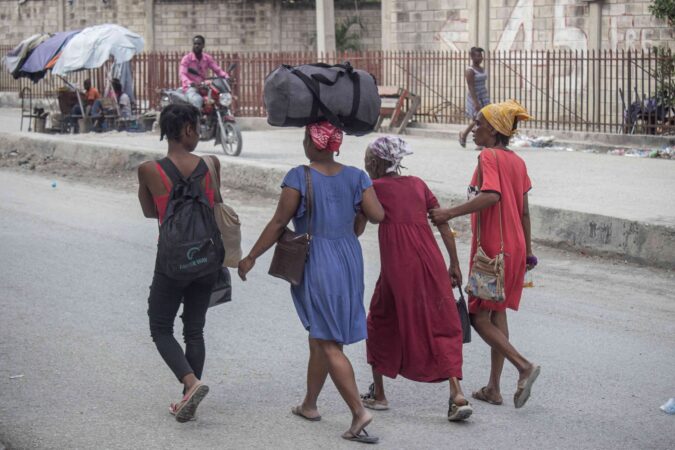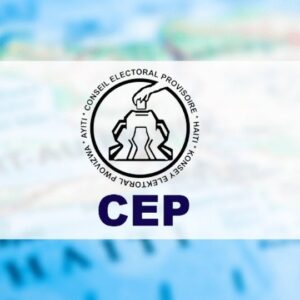We have not yet achieved a transition that can take us from point P of the Provisional to point D of Democracy
The special representative of the Secretary General of the United Nations considered, a few weeks ago, that a “transition within the transition” was not possible.
Recent events prove him wrong, but let’s admit one thing: until now, and for three, for eight, for twenty, for thirty years, we have not yet achieved a transition that could take us from point P of the Provisional at point D of Democracy.
Although we have little control over the direct redefinition of the rules of the political game, we can affirm that a real transition cannot take place without exceeding the limits imposed by our judicial system.
We must indeed find the strength and the tools to put an end to this vicious circle of violence and impunity which threatens to sweep away our society.
At this stage, it would be a shame to deprive ourselves of the reflections carried out within the framework of dozens and dozens of transitional justice processes experienced around the world.
We can affirm that a true transition cannot take place without overcoming the limits imposed by our judicial system.
Some consider that this has nothing to do with the Haitian crisis, others reduce the debate to that of amnesty…
This article proposes to return to the fundamentals of transitional justice to study to what extent its mobilization could make sense in Haiti.
Haiti’s problems are not ordinary crime
Although we cannot speak strictly of an armed conflict or civil war with regard to international humanitarian law, it must be recognized that the exacerbation of violence in Haiti and the generalized deterioration of the security situation are not simply a matter of ordinary crime.
Something more serious, more profound is at play within our society, which today risks threatening its foundations.
Read also: Gangs hack PNH communications radios
Massive human rights violations affect too many victims. They affect state structures too directly, through the involvement of senior officials and the failure, planned or not, of the majority of institutions.
They have overly complex ramifications between arms and drug trafficking, the proliferation of armed gangs, targeted assassinations, sexual violence, planned massacres, degradation of property, forced displacement of populations, embezzlement of public funds, corruption and power issues.
An elderly lady is helped by other women as they rush out of downtown Port-au-Prince due to gang violence in March 2024. | © Jean Feguens Regala/AyiboPost
These massive human rights violations cannot be addressed by our justice system as it exists today. Because this system has proven its structural failure, further aggravated by the dysfunctions caused by the economic situation.
Because he has demonstrated his lack of independence and his inability for years to be part of a process of accountability. Because this institutional and institutionalized failure is part of a vicious circle within which those who want nothing to change want to trap us.
Serious human rights violations cannot be addressed as long as those who commit them continue, overtly or covertly, to call the shots.
Read also: NGOs offer fake weapons as gifts in Haiti. These toys are no longer in fashion.
And yet, it is only by addressing these serious violations that we can put them out of the game! This is why we must update our software and try to rely on original mechanisms to prevent the trap from closing on us.
Transitional justice offers tools to respond to contexts of deep crisis
The transitional justice has been deployed in cases involving civil war situations, such as in Liberia, or genocide, such as in Rwanda.
But we also find it in more diluted contexts, arising from internal conflicts between various actors, such as in Colombia, Peru, or Madagascar. It was mobilized in the context of political transitions, to turn the page on Apartheid in South Africa or several Latin American dictatorships, or following ruptures in the constitutional order or electoral crises, as in Côte d’Ivoire. Ivory and several other African countries.
Serious human rights violations cannot be addressed as long as those who commit them continue, overtly or covertly, to call the shots.
More and more requestede to confront the crimes of the past, transitional justice has allowed Canada to open the page of abuses committed against indigenous peoples.
Recently, the United Nations Permanent Forum on People of African Descent also recommended the creation of a Special Tribunal for Claims for Reparations Related to Colonization and Slavery and an International Commission of Inquiry on restorative justice for Haiti.
Among the emblematic initiatives of transitional justice includes the “Truth and Reconciliation Commission” established in 1995 in South Africa. They are found on all continents under various names, such as the “National Reconciliation Commission” in Rwanda, the “Lusstration Commissions” in several post-communist Eastern countries, the “Commission for Historical Clarification” in Guatemala. , the “National Commission on the Disappearance of Persons” in Argentina, the “National Truth and Reconciliation Commission” in Chile, or the “Truth and Dignity Commission” in Tunisia…
The majority of these institutions are set up to investigate and document serious human rights violations, with more or less extensive fields of study and remit.
More and more requestede to confront the crimes of the past, transitional justice has allowed Canada to open the page of abuses committed against indigenous peoples.
A platform of expression for victims, truth commissions not only shed light on the abuses committed but also on the system that made them possible, by going up and down the chain of responsibilities.
Their mission then extends to issuing recommendations for structural reforms. It can also be supplemented by mediation, reparation, restitution, reintegration, rehabilitation or even awareness and memory work programs.
In certain cases, commissions may be entrusted with jurisdictional powers, such as the “Comprehensive System of Truth, Justice, Reparation and Non-Repetition” in Colombia.
In many situations, legal proceedings are left, with more or less satisfactory results, to the national justice system. They can also be entrusted to extrajudicial processes or traditional justice mechanisms, such as “Gacaca” in Rwanda.
It happens that certain cases end up before the International Criminal Court, as was the case in the Democratic Republic of Congo, Uganda or Sudan. Certain circumstances may also justify the creation of special or hybrid criminal tribunals, such as the International Criminal Tribunal for Rwanda, the Special Criminal Court of the Central African Republic, the United Nations Special Tribunal for Lebanon, the Extraordinary Chambers in Cambodia or in Senegal.
Transitional justice cannot be confused with amnesty
And their concept of transitional justice brings together heterogeneous realities, it has been consolidated over time in the form of a toolbox organized around four fundamental pillars: the right to the truth, the right to justice, the right to reparation, the right to guarantees of non-repetition.
It is the interdependence between these pillars and the articulation between associated judicial and non-judicial mechanisms that make the concept rich.
It is in this sense that transitional justice can help reshuffle the cards and respond to the needs of societies torn apart by violence, to not only establish the facts, determine responsibilities and repair victims, but also participate in the state reconstruction of law and the restoration of the social fabric. It thus goes well beyond the scope of intervention of ordinary justice, confined to stating the law and resolving, with its limited resources, disputes on a case-by-case basis.
However, we must be careful not to adopt an idealistic vision. Many experiences did not live up to expectations. Faced with political, institutional or financial obstacles, they have often been hampered by the influence retained by those responsible or their ability to put pressure on victims.
The choice has also sometimes been made, in the name of national reconciliation or the guarantee of political stability, not to bring certain officials to justice. This was the case in South Africa, where more than 800 people involved in political crimes were granted amnesty in exchange for full disclosure of their crimes.
…truth commissions not only shed light on the abuses committed but also on the system that made them possible, by going up and down the chain of responsibilities.
The adoption of amnesty laws by several countries, such as Chile, Argentina, Peru, Guatemala and El Salvador, has nevertheless been the subject of long controversies, fueled by the work of the commissions, often lasting years later to their repeal or annulment by the Supreme Courts.
As we can see, the dynamics of transitional justice continue to be affected by tensions which can prove contradictory. However, it would be incorrect to purely and simply equate transitional justice with amnesty measures, even though its essence is essentially focused on the fight against impunity.
Watch this explanatory video from AyiboPost which helps you understand the concept of “amnesty” in the Haitian context:
The mobilization of transitional justice in Haiti raises several challenges
It is fundamental to understand that the transitional justice does not have the same framework as international criminal justice, to which it can occasionally call.
Established ex nihilo to respond to an existing problem, transitional justice mechanisms cannot call on a body of codified and predefined rules and therefore depend considerably on political action and the capacity of actors to do so. influence.
It is indeed a soft right, a fluid, evolving concept, which brings together a range of tools which may or may not be mobilized in each specific context.
This flexibility and this capacity to adapt is what constitutes both the strength and the weakness of transitional justice. This is why it could offer possible solutions to address the challenges associated with complexities raised by the Haitian crisis; this is also what means that it could ultimately produce nothing positive.
As we can see, the dynamics of transitional justice continue to be affected by tensions which can prove contradictory.
The latest political agreement “for a peaceful and orderly transition” adopted on April 3, 2024 provides in its article 45 to include in the roadmap drawn up for the new government the creation of a “Justice, Truth and Reparation Commission”. This insertion represents a first step which could open a new path and lead us, we must agree, towards a new impasse.
Some in fact remember the results of the “National Commission of Truth and Justice” set up after the return of President Aristide in 1994: its edifying report buried, the pure and simple annulment by the Court of Cassation of the convictions pronounced during the emblematic Raboteau trial thanks to another transition, that of 2004… Like a page of questions that was closed on itself, from one coup d’état to another, with all its gray areas.
Others are concerned about calls for a truce or the conclusion of peace treaties, fearing that the slogan of national reconciliation will transform gang leaders into legitimate interlocutors, like the dozens of reports on foreign television which give voice without complexes to these new leaders.
Faced with these real challenges, it is up to us to establish red lines. Transitional justice is not an end in itself, its mechanisms cannot do everything. Its tools can only work if they are anchored in reality, appropriated sincerely by the actors and oriented towards the desire for change and the objective of ending the transition.
Read also: Perspective | Haiti and the urgency of true transitional justice
It is up to us to proclaim loudly and clearly that it is time to demand accountability from all those who participate in the destruction of our country.
It’s up to us to show the importance of doing our school homework to make the mistakes of recent years tangible and intelligible.
It is up to us to impose guarantees of non-repetition at the center of the debate, so that future transitions do not bite each other’s tails again.
It is up to us to affirm that, to move forward, we must turn to the victims, and remember that the cardinal value on which our society was built is our common humanity.
Par Jacques Letang
Cover image published by AyiboPost showing a legal framework in the Haitian context.
Keep in touch with AyiboPost via:
► Our channel Telegram : Click here
► Our Channel WhatsApp : Click here
► Our Community WhatsApp : Click here








